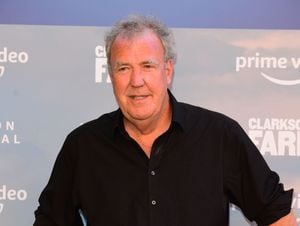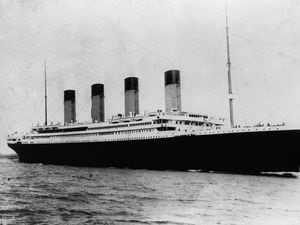Peter Rhodes on Clarkson's return, Enid Blyton's critics and three fine writers
Read the latest column from Peter Rhodes.

I was surprised to switch on Farming Today (Radio 4) and hear something rare – Jeremy Clarkson on the BBC.
The programme featured his new series on Amazon Prime Video, Clarkson's Farm. We were introduced to a kinder, gentler, more contrite Clarkson, a man quite unlike the raging prima donna who was sacked by the Beeb in 2015 for punching his producer.
Three days after Farming Today, Clarkson popped up again, this time in a double spread feature in the Daily Mail where the Prime Minister's sister Rachel Johnson, no less, applauded Clarkson's Farm as “a ruddy, muddy triumph” which is “moving, inspiring and utterly compulsive.” No-one denies that Clarkson is a superb presenter. But until now the sins that led to his sacking seemed too gross for a socially responsible organisation like the Beeb ever to forgive. Now I suspect we are seeing the start of a campaign to get him back on the BBC. If I had to put money on Clarkson's return, I'd expect it within a year or two.
Once again Enid Blyton is being vilified, this time by English Heritage, for racism and xenophobia. So how can we judge long-dead writers by modern values?
My holiday reading in Devon last week was An Infant in Arms, Graham Greenwell's memoir of life as a young officer on the Western Front between 1914-18. Greenwell was criticised for declaring that his years in the trenches were “among the happiest I have ever spent.”
Read more closely and you discover that Greenwell endured hell, waist-deep in dead bodies and raw sewage. Yet he possessed a rare optimism that next week would be better than this. He was a remarkable, admirable man. And so were my other recent reads, Siegfried Sassoon, the shell-shocked war hero and rebel who refused to fight, and Jerome K Jerome, the charming, observant Victorian author of one of our most enduring comedies, Three Men in a Boat.
These three undeniably good men have one strange thing in common. It is that in their writing, in describing blackened faces or minstrels, Greenwell, Sassoon and Jerome all used the N-word. So does that make them bad men, or simply people writing in and for a different age?
I can't comment on Enid Blyton because I know less about her writing. But I do blame her for a caption in The Secret of Killimooin (1943), set in a Balkan palace when, as night fell, “the girls got into their big four-poster, giggling.”
I was a young reader and that comma failed to register. So I was convinced for some years that the correct name for a four-poster bed was a giggling. As a precocious ten-year-old, I quizzed a guide in a bedroom at Warwick Castle: “That's quite a big giggling, isn't it?” Six decades on, I blush at the memory.





